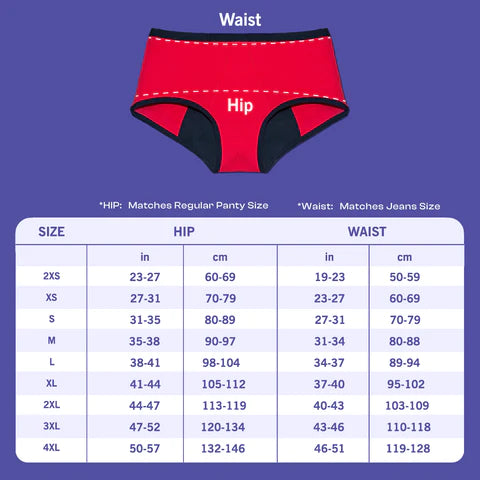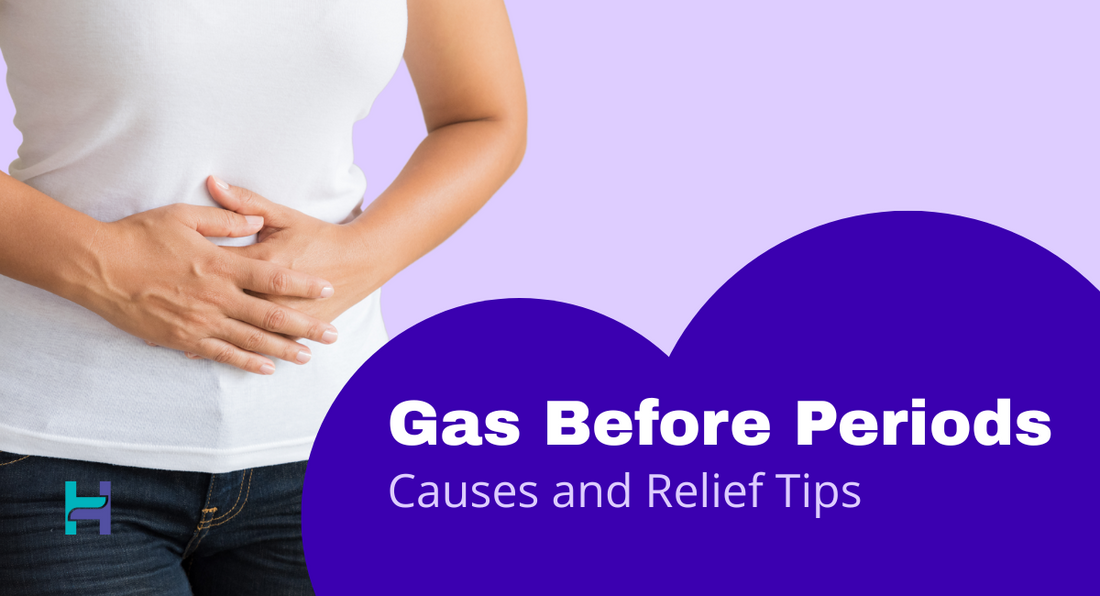Gas and bloating just before your period are common and completely normal. Many women experience these symptoms because of hormonal changes in the days leading up to their period. While gas and bloating can feel uncomfortable or frustrating, but it is usually not a cause of concern. And there are simple ways to manage it. In this blog, we will explore why gas forms before periods and we will also share some easy-to-follow tips to help you feel more relaxed and happier.
Why does Bloating and Gas happen before Periods?
Do you know that atleast 73% experience at least one of the primary GI symptoms either pre-or during menses? The main culprits behind your pre-period bloat are the hormonal fluctuations that occur during your menstrual cycle. In the days leading up to your period, progesterone levels rise and then fall, while estrogen levels fluctuate as well. These hormonal shifts directly impact your digestive system and how your body retains water.
Progesterone specifically slows down your digestive tract, which means food moves more slowly through your intestines. This slower movement gives your body more time to absorb water from your food, leading to constipation for some women. It also creates the perfect conditions for excess gas to build up in your digestive system. At the same time, estrogen can cause your body to retain more water, contributing to that overall feeling of fullness and bloating.
Common causes of Gas and Bloating before your Period
While hormones are the primary trigger, several specific factors contribute to premenstrual bloating and gas:
Hormonal Changes
As mentioned, fluctuating levels of progesterone and estrogen are the main drivers. Progesterone relaxes smooth muscle tissue throughout your body, including in your digestive tract, slowing things down and potentially leading to constipation and gas buildup.
Slower Digestion
With your digestive system moving more slowly, food has more time to ferment in your intestines, producing excess gas. This slowdown can also make constipation more likely, which further contributes to bloating.
Water Retention
Your body may hold onto more water during this time, particularly in your abdomen, breasts, and extremities. This extra fluid adds to the feeling of fullness and bloating.
Food Cravings and Changes in Eating Habits
Many women experience intense food cravings before their periods, often for salty, sweet, or processed foods. These types of foods can increase water retention and gas production. Additionally, some women may eat more or differently during this time, which can disrupt normal digestion.
Stress and Inflammation
The hormonal changes before your period can trigger inflammatory responses in your body. Combined with any pre-period stress or anxiety you might be experiencing; this can worsen digestive symptoms like bloating and gas.
Symptoms of Gas before periods
Premenstrual bloating and gas can manifest in several ways. You might notice:
- A tight, full feeling in your abdomen
- Visible swelling or puffiness in your belly
- Increased passing of gas
- More frequent burping
- Discomfort when wearing tight clothing
- A feeling of heaviness in your lower abdomen
- Temporary weight gain (usually 1-3 kgs.)
Unlike bloating from food intolerances or digestive disorders, period-related bloating typically begins 1-2 days before your period and improves within a few days after your period starts. It also tends to follow a predictable pattern that aligns with your menstrual cycle.

Tips to relieve Bloating and Gas naturally
While you can't completely prevent hormonal changes, you can take steps to minimize their impact on your comfort level. Here are some effective strategies:
Stay hydrated: Drinking plenty of water helps flush excess sodium from your system and actually reduces water retention. Aim for at least 8-10 glasses daily.
Watch your salt intake: Limit processed foods, fast food, and added salt, which can worsen water retention.
Choose anti-inflammatory foods: Incorporate fruits, vegetables, whole grains, and lean proteins, which can help reduce inflammation.
Move your body: Light exercise like walking, yoga, or swimming can help move gas through your digestive system and reduce bloating.
Try gentle heat: A warm bath or heating pad on your abdomen can help relax muscles and provide comfort.
Consider herbal remedies: Peppermint tea, ginger tea, green tea in periods or chamomile can help ease digestive discomfort and reduce gas.
Include probiotics: Curd during periods, or probiotic supplements may help maintain digestive balance.
Avoid trigger foods: Common gas-producing foods include beans, dal, broccoli, carbonated drinks, and artificial sweeteners.
Practice stress reduction: Try meditation, deep breathing, or gentle stretching to manage stress, which can worsen digestive symptoms.
When should you visit your doctor
While some bloating before your period is normal, certain symptoms warrant medical attention:
If your bloating is severe, extremely painful, or doesn't improve when your period starts, it's worth discussing with your healthcare provider. Additionally, if bloating is accompanied by missed periods, unusual discharge, fever, or severe abdominal pain, seek medical advice promptly.
Some conditions like endometriosis, polycystic ovary syndrome (PCOS), or irritable bowel syndrome (IBS) can cause bloating that's more severe than typical premenstrual bloating. These conditions often benefit from specific treatments beyond general self-care measures.
Summary
It is quite common for women to feel gassy and bloated at the beginning of the periods. However, please note that these signs are not very serious. Occurrence of gas before your period is related to the hormonal changes.
If you follow a few small changes like drinking plenty of water, a little bit of exercise and mindful eating things can be taken care easily. We highly recommend you to keep yourself active throughout the day. These tips can surely make you comfortable during your periods. We hope that these tips will help you overcome these common symptoms. We would love to hear your experience with period bloating and gas in the comments section below.
References:
1. The role of probiotics in improving menstrual health in women with primary dysmenorrhoea
2. Progesterone Inhibitory Role on Gastrointestinal Motility
3. Relationship of bloating to other GI and menstrual symptoms in women with irritable bowel syndrome
4. Changes in body weight and body composition during the menstrual cycle



